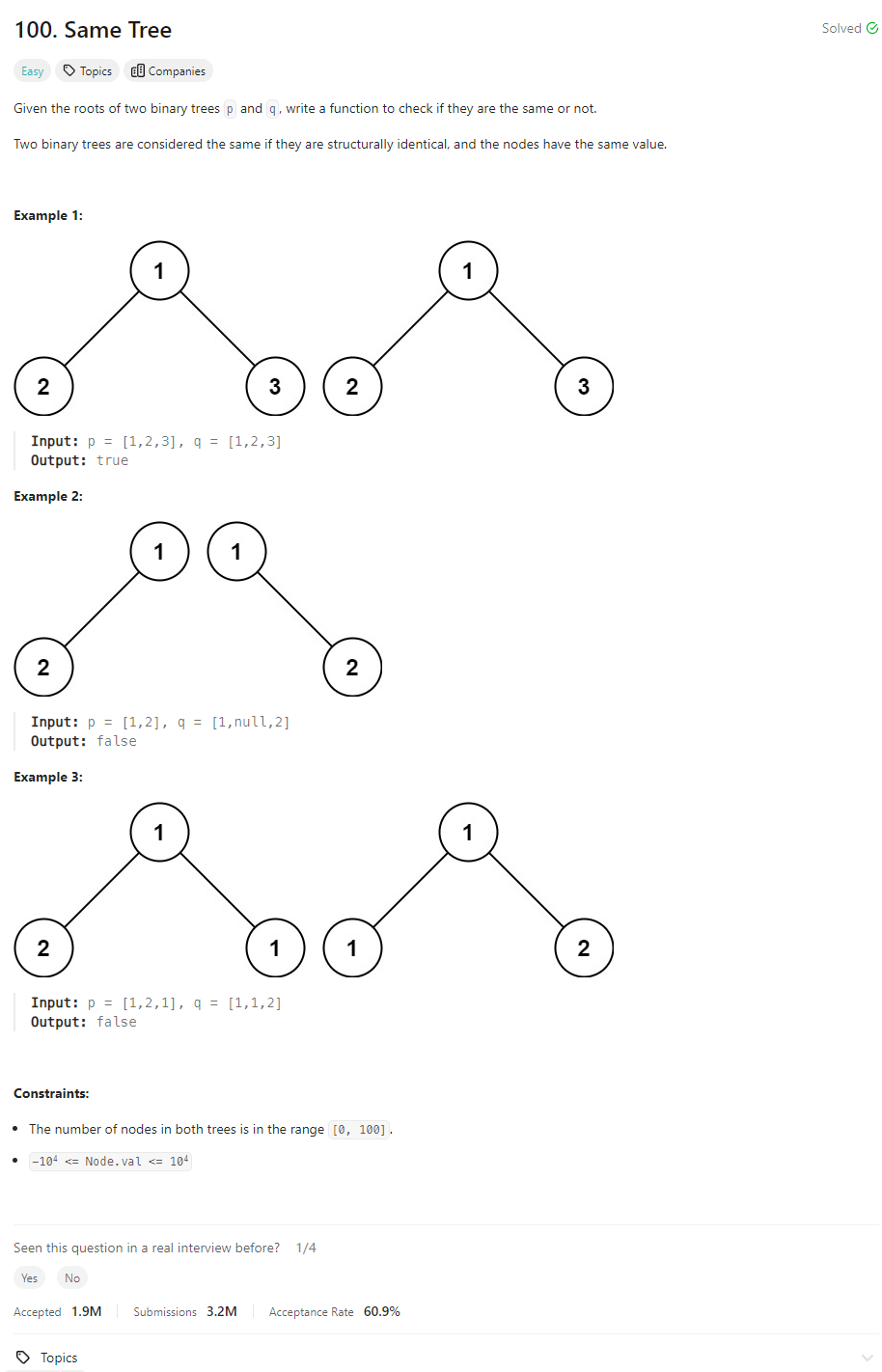Problem of The Day: Same Tree
Problem Statement
Intuition
My initial thought is to perform a preorder traversal on both trees and compare the resulting traversal lists. If the traversal lists of both trees are the same, then the trees are identical.
Approach
I will use a recursive approach to perform a preorder traversal on both trees. During the traversal, I will append the values of the nodes to separate lists for each tree. If a node is None, I will append a special marker (such as None) to indicate the absence of a node at that position. After the traversal, I will compare the lists for both trees. If the lists are equal, the trees are identical.
Complexity
-
Time complexity: O(n) where n is the number of nodes in the larger of the two trees. This is because we traverse each node once.
-
Space complexity: O(n) where n is the number of nodes in the larger of the two trees. This is because we store the values of all nodes in lists during traversal.
Code
# Definition for a binary tree node.
# class TreeNode:
# def __init__(self, val=0, left=None, right=None):
# self.val = val
# self.left = left
# self.right = right
class Solution:
def isSameTree(self, p: Optional[TreeNode], q: Optional[TreeNode]) -> bool:
def preorder_travesal(node, curr):
if not node:
curr.append(None)
return
curr.append(node.val)
preorder_travesal(node.left, curr)
preorder_travesal(node.right, curr)
p_list, q_list = [], []
preorder_travesal(p, p_list)
preorder_travesal(q, q_list)
return p_list == q_list
Alternative Approach
Instead of traversing the two trees twice and storing the two lists, we can traverse the two trees simultaneously and check for valid conditions at each step, as demonstrated below.
# Definition for a binary tree node.
# class TreeNode:
# def __init__(self, val=0, left=None, right=None):
# self.val = val
# self.left = left
# self.right = right
class Solution:
def isSameTree(self, p: Optional[TreeNode], q: Optional[TreeNode]) -> bool:
if not p and not q:
return True
if p and not q:
return False
if not p and q:
return False
if p.val != q.val:
return False
return self.isSameTree(p.left, q.left) and self.isSameTree(p.right, q.right)
- Time complexity: O(n)
- Space complexity: O(n)
